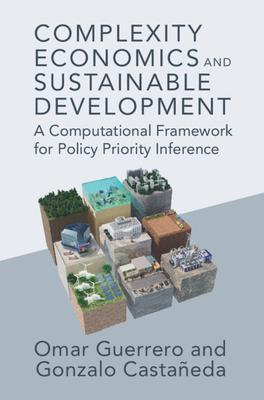The Sustainable Development Goals are global objectives set by the UN. They cover fundamental issues in development such as poverty, education, economic growth, and climate. Despite growing data across policy dimensions, popular statistical approaches offer limited solutions as these datasets are not big or detailed enough to meet their technical requirements. Complexity Economics and Sustainable Development provides a novel framework to handle these challenging features, suggesting that complexity science, agent-based modelling, and computational social science can overcome these limitations. Building on interdisciplinary socioeconomic theory, it provides a new framework to quantify the link between public expenditure and development while accounting for complex interdependencies and public governance. Accompanied by comprehensive data of worldwide development indicators and open-source code, it provides a detailed construction of the analytic toolkit, familiarising readers with a diverse set of empirical applications and drawing policy implications that are insightful to a diverse readership.
| FindBook |
有 1 項符合
Complexity Economics and Sustainable Development: A Computational Framework for Policy Priority Inference的圖書 |
 |
Complexity Economics and Sustainable Development: A Computational Framework for Policy Priority Inference 作者:Guerrero 出版社:Cambridge University Press 出版日期:2024-01-25 語言:英文 規格:精裝 / 普通級/ 初版 |
| 圖書館借閱 |
| 國家圖書館 | 全國圖書書目資訊網 | 國立公共資訊圖書館 | 電子書服務平台 | MetaCat 跨館整合查詢 |
| 臺北市立圖書館 | 新北市立圖書館 | 基隆市公共圖書館 | 桃園市立圖書館 | 新竹縣公共圖書館 |
| 苗栗縣立圖書館 | 臺中市立圖書館 | 彰化縣公共圖書館 | 南投縣文化局 | 雲林縣公共圖書館 |
| 嘉義縣圖書館 | 臺南市立圖書館 | 高雄市立圖書館 | 屏東縣公共圖書館 | 宜蘭縣公共圖書館 |
| 花蓮縣文化局 | 臺東縣文化處 |
|
|
圖書介紹 - 資料來源:博客來 評分:
圖書名稱:Complexity Economics and Sustainable Development: A Computational Framework for Policy Priority Inference
|











